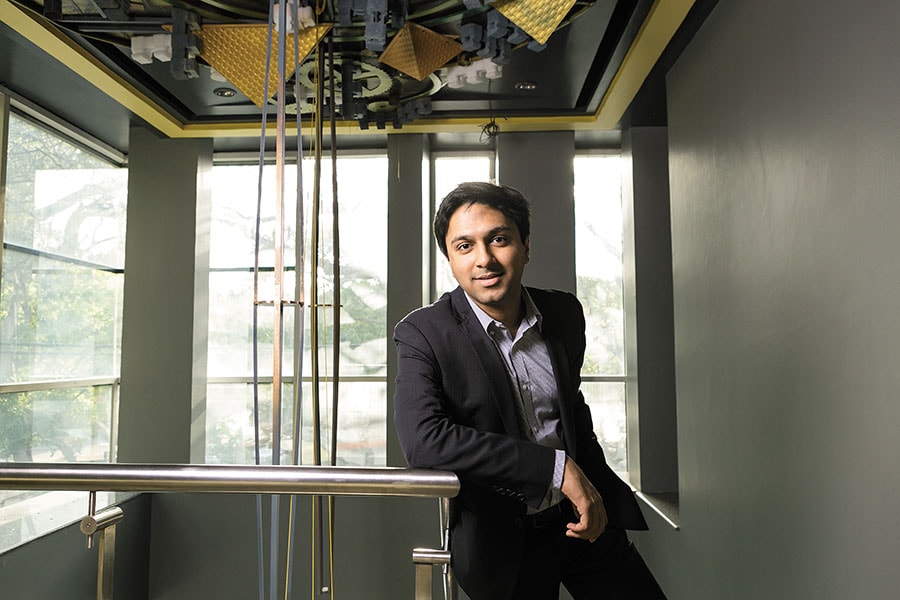
Saket Modi: Hacking for the greater good
With Lucideus Labs, he is securing the IT networks of companies, ring-fencing their data and weeding out threats
 Saket Modi, CEO, Lucideus
Saket Modi, CEO, LucideusImage By: Madhu Kapparath
For 26-year-old Saket Modi, trustworthiness is a defining trait. Companies—from airlines and banks to restaurant chains—have been flocking to his six-year-old cyber security firm Lucideus Labs, giving it access to their IT systems. They want Lucideus to scan their IT networks for security vulnerabilities, and suggest remedial measures. Even the National Payments Council of India (NPCI), India’s umbrella organisation for all retail payment systems, has reposed its trust in Modi to hack into their systems and look for threats.
At a time when securing data has become paramount, this is an onerous task. “I am not in the business of monotony,” says Modi. “We are an industry where we don’t know the output… You have to think like a hacker and find ways to penetrate a software or server that is designed to withstand hacking.”
Lucideus, which Saket started as a college student in 2012, currently has over 100 employees. Last year, it launched a new product, Safe (Security Assessment Framework for Enterprise), which makes it possible for a client company to view the real-time status of its IT framework on a smartphone and monitor potential threats. Companies can then upgrade the safety of their networks.
“Two weeks back [late March], a big health care provider approached us to look for malware in their IT systems,” Modi says. “Not only were we able to hack into their system and access millions of health care records, we could even change a patient’s health record.” Modi informed the company and they are now working on finding a solution to ensure that the data is safe. In another instance, Saket and his team demonstrated to a global bank how they could steal money from the bank even as they were launching a smartphone app.
Safe, Modi reckons is revolutionary, particularly since he claims it is the first of its kind in the world. “We have built a product that is ground breaking,” he says. “We have made a new category of cybersecurity product and there is not a single competitor that we have here. The product de-jargonises the cybersecurity threats for a company, helps create a scorecard for the IT systems and helps a CEO make informed decisions and choices. It’s like a blood test report, and based on the report, one can take decisions on their cybersecurity.”
Lucideus is soon planning to launch the Safe app, on Android and iOS, for individual consumers to detect data privacy issues on their devices and warn them against apps that compromise their privacy. The company trains students in areas such as network vulnerability scanning, and defending networks and web servers from attacks. “We are the world’s largest rated cybersecurity trainer on Google,” says Modi.
(This story appears in the 30 November, -0001 issue of Forbes India. To visit our Archives, click here.)





